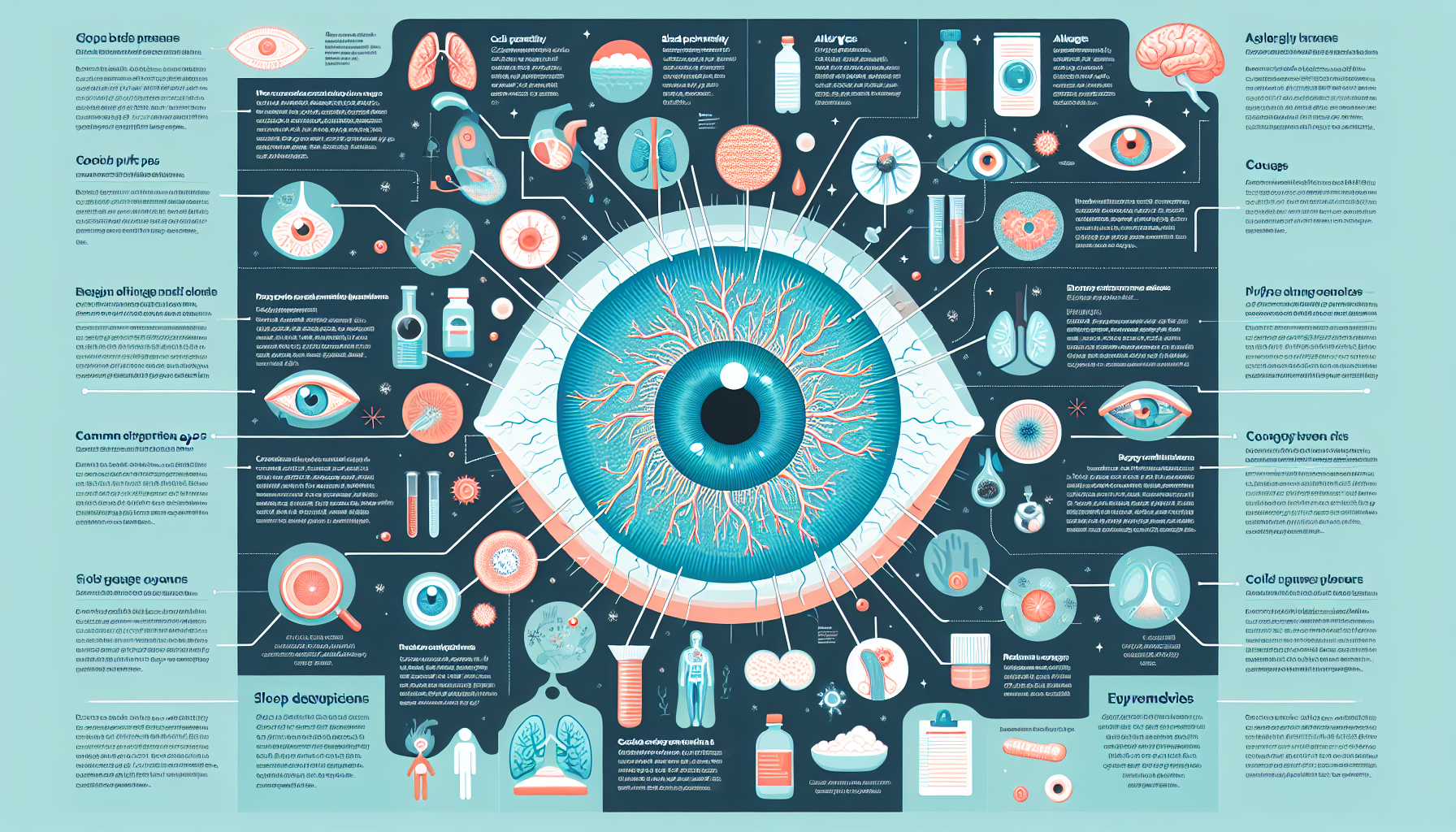The Squeaky Eye: An In-Depth Look at Why Your Eyes Might be Puffing Up
We’ve all woken up, groggy and bleary-eyed, only to be met with the unfortunate sight of swollen eyelids staring back at us in the mirror. Perhaps you have endured the prickling discomfort that follows a good cry or a long night of yawning. Eyelids, while often overlooked, are surprisingly sensitive and can swell for various reasons more frequently than you might think. While finding quick fixes can sometimes feel necessary, remember that persistent swelling could be a sign of underlying health issues. Let’s dive into the common culprits behind those unsettling puffy eyes.
1. Lack of Sleep
Have you ever wondered why, despite how well you think you slept, you still emerge with swollen eyelids? According to Dr. Anar Mikailov, co-founder of Skintensive, "Sleep deprivation causes an increase in certain hormones that lead to fluid retention." When you miss out on those crucial hours of shut-eye, it slows down your body's waste removal process, allowing toxins to accumulate, often manifesting as swelling around the eyes.
Just think of a time in college when you pulled an all-nighter studying for an exam. After surviving on caffeine, you probably noticed that your eyelids seemed to have added some extra baggage by morning. The body's inability to detoxify efficiently can lead to more than just swollen eyes—it can impact your overall health.
2. Sleep Position
It’s not just your sleep duration that matters; how you sleep is equally critical. If you’re one to bury your face in the pillow, you might be inadvertently aiding the swelling of those delicate eyelids. Dr. Mikailov explains, "Sleeping face-down can cause fluids to pool in the face, particularly around the eyes." He suggests propping your head up slightly with additional pillows to promote better fluid drainage during the night.
Imagine coming back from a long hike, tired and ready to crash. You flop onto your bed, flat as a pancake. You’re likely to see those familiar morning bags under your eyes, a telltale sign of poor positioning!
3. Hormonal Changes
If you identify as someone who menstruates, hormonal fluctuations could also be contributing to your puffy eyes. As Dr. Mikailov articulates, an increase in progesterone before your period can lead your body to retain extra fluid, manifesting again as swelling around the face, especially the eyes. The mirror may reflect more than just your face—it could be an echo of your natural cycle.
Think back to a time you noticed those pesky bags, right before "that time of the month." Whether your symptoms are mild or severe, those hormonal waves don’t just impact your mood; they can also alter your appearance.
4. Allergies
Are you a seasonal sneezer? If you find yourself with itchy, watery eyes come spring, you’re not alone. Allergies can lead to eye swelling through a process known as histamine release, causing inflammation and discomfort. Dr. Mikailov notes, "When histamine levels rise, fluid can accumulate, leading to swelling in the eyes and face."
Recollect your experience on a sunny spring day—perhaps you were enjoying a picnic, only to be attacked by pollen-laden breezes. Not only do allergies conjure sneezes and watery eyes, they can also manifest in puffy eyelids, stealing the joy from an otherwise beautiful day.
5. Dehydration
In a paradoxical twist, dehydration can lead to…yes, puffiness! "When your body is deprived of water, it tends to hold onto what little fluid it has," explains Mikailov. This retention can present as facial swelling. Think of it like trying to get water from a dried-up sponge; it’s about conserving what’s left.
Maybe you spent an entire afternoon in the sun without drinking enough water—by the end, your body was cashing in on its reserves when you eventually looked in the mirror.
6. Crying
Lastly, what about those good old tears? Crying can cause the small tissues surrounding the eyes to absorb fluid, resulting in swelling. "When you cry, the surrounding tissues can become inflamed due to the emotional release," mentions Dr. Mikailov. This swelling might become puffiness if you wipe away tears hastily, irritating the delicate skin further.
Think back to a moment of heartbreak or overwhelming joy—those tears certainly felt cathartic, didn’t they? They might also have left you feeling like a raccoon in the morning.
Conclusion
In conclusion, puffy eyelids are often more than just an aesthetic issue. Whether it’s from a lack of sleep, a sneaky sleep position, fluctuating hormones, allergies, dehydration, or a good cry, each cause gives us insight into our health. If you find your puffy eyes becoming a consistent issue, consider consulting a healthcare professional to identify any underlying conditions. So, the next time you wake up with that unwelcome surprise, take a moment to assess the potential reasons—it might be your body sending you a vital message!
